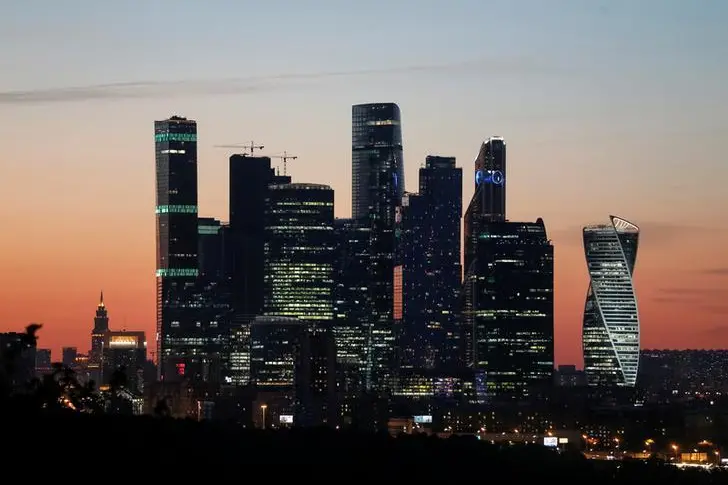PHOTO
MOSCOW- Pandemic and inflation risks may hinder Russia's economic recovery, the World Bank said on Wednesday, as it lowered its 2022 growth forecast and warned of other risks including geopolitics and the green energy transition.
Inflationary pressures are building worldwide, with Russia no exception as it grapples with inflation above 8%, twice as high as its target, while the emergence of the new COVID-19 variant Omicron has spooked global markets in November.
"There are four risks that are important. The first one is the pandemic, a very significant factor. Then you have inflation. Then you have geopolitics," Renaud Seligmann, the World Bank's country director in Russia, told Reuters.
Seligmann said the fourth, a more medium-term risk of the green transition could also become an opportunity for Russia.
After shrinking by 3% in 2020, its sharpest contraction in 11 years, the Russian economy is set to grow 4.3% this year, according to the World Bank, but momentum will likely wane in the next few years.
David Knight, the World Bank's chief economist in Russia, said Russia's economic activity would likely be disrupted next year "as the result of COVID-19 outbreaks and the on-off restrictions on mobility and economic activities that might be needed to control the virus."
Knight noted that Russia's vaccination rate was lower than in upper-middle-income and high-income countries.
In a report published on Wednesday, the World Bank said it now expects Russia's gross domestic product to grow by 2.4% in 2022, down from a previous forecast of 2.8%, and said growth would ease further in 2023 to 1.8%.
A series of rate increases by the central bank could take their toll on economic growth as Russia has raised its key rate six times this year from a record low of 4.25% to 7.5%. On Tuesday, it said it would consider an up to 100-basis-point hike at its next board meeting on Dec. 17.
Knight said the central bank had taken appropriate and early action this year to tackle rising inflation and described its current monetary policy as not especially tight.
(Reporting by Andrey Ostroukh; Writing by Alexander Marrow; Editing by Louise Heavens) ((alexander.marrow@thomsonreuters.com;))





















